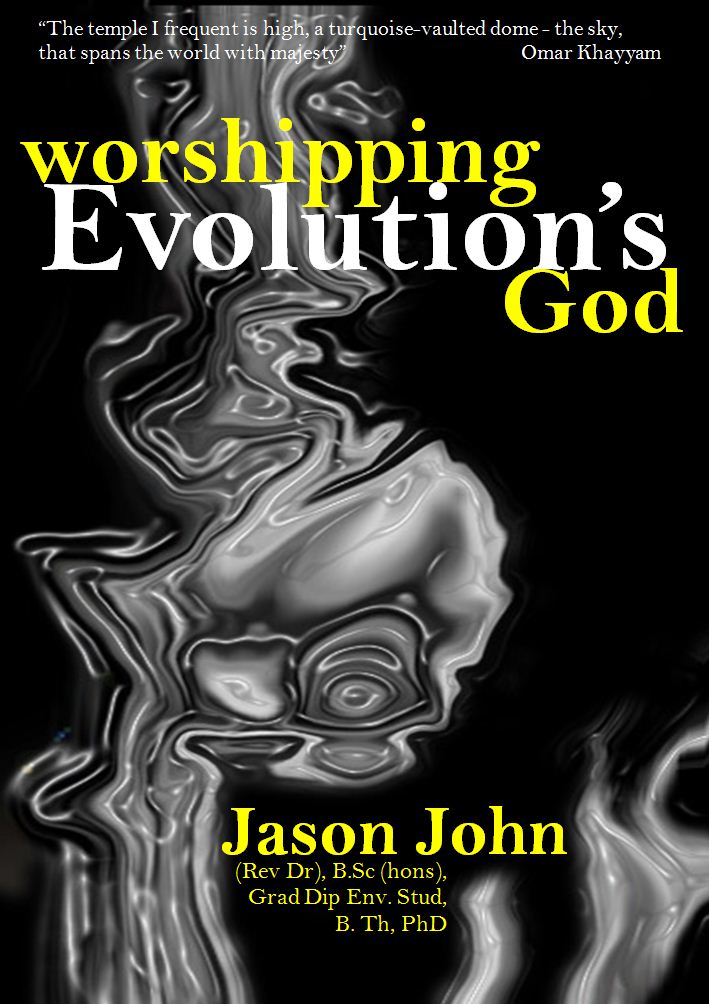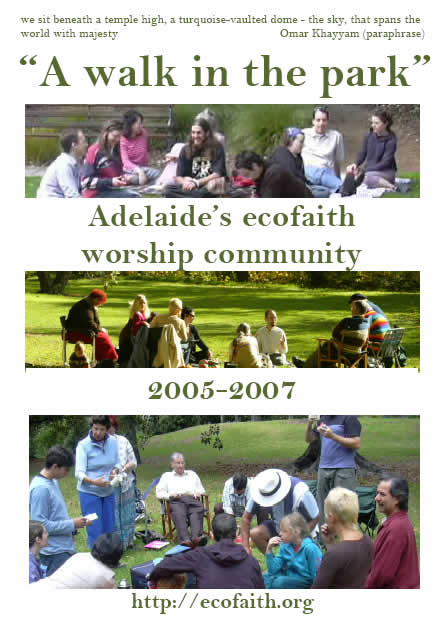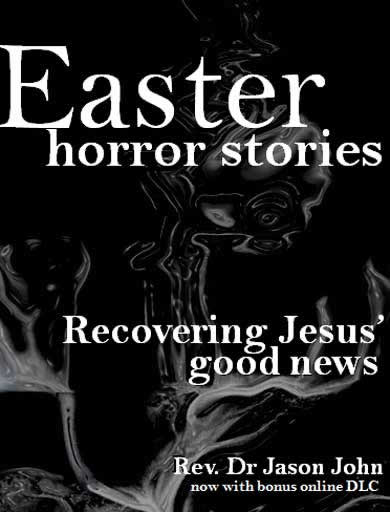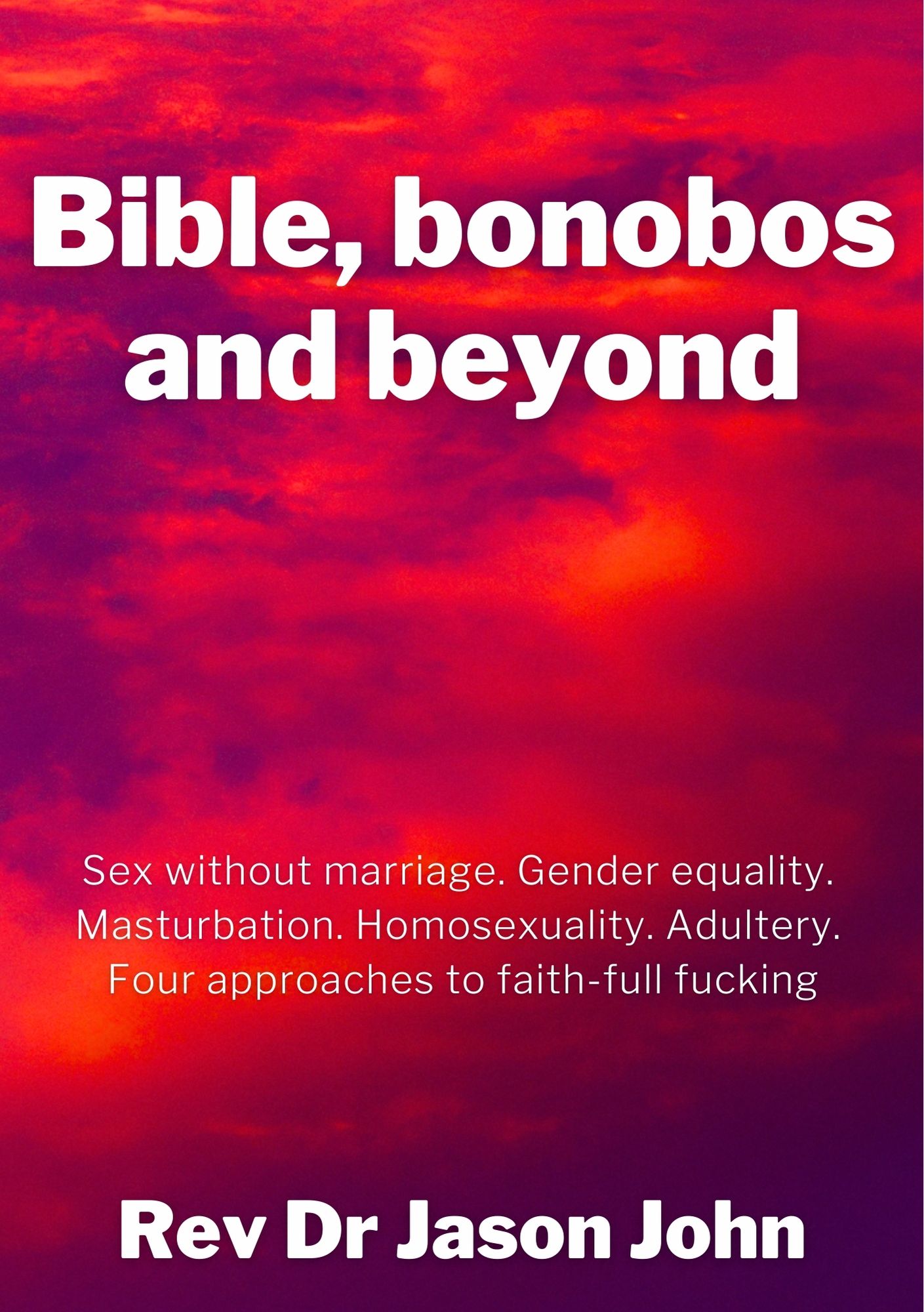
“Sex, evolution, and the Bible… For some Christians those three words should never be together in the same religious sentence. But Jason John (thank goodness) has put them there – and all with raw and open honesty. I await the prayers and bonfires!”
Join the Conversation
The book was written to spark discussion and encourage people to share their stories of sex and celebration, and struggle.
To help you preserve the anonymity of those who want it, and to help others join in, the discussion is hosted on goodreads.
Join the conversation
Write a review
or contact me directly at
jasonrobertjohn@gmail.com
Share your secret, sacred story below
or email sacred_story@ecofaith.org
Christians inherited the Jewish origin stories, codified in the book of Genesis. These stories shaped our understanding of Jesus, and how to behave as we followed his teachings. Christians today have a vastly expanded origin story, thanks to the insights of cosmologists, geologists, evolutionists, geneticists, ecologists and so on. And thank God for that!
This new origin story, however, has barely penetrated the consciousness of the church. Just over a third of Christians reject evolution completely. If that’s you, you might want to skip to ‘Sex in the Bible’ on page 55, but I hope you’ll hang in there for the first section. Another third believes, falsely, that evolution and the biblical account of creation can be reconciled. Only a fifth accept evolution completely, and a substantially smaller proportion have had the time or energy to think deeply about the implications of evolution for their faith. This book will help, at least as far as the sexual and relational aspect of our discipleship. I hope it will also persuade some of the ‘reconcilable’ third of the need to more deeply embrace the evolution story of our origins, and even encourage the ten percent who are undecided to join us. I hope that if you are an ex or non-Christian, and you live in a culture influenced by Christianity, that you will find the science fascinating, and the faith reflection a stimulus to do your own processing.
If you were edged out of church, or drifted away, because your sexual practice didn’t fit the narrow prescriptiveness of your congregation, perhaps this will provide a way back, or at least nurture your faith and discipleship as part of the church diaspora.
If you sit within the half of the church who think that sex before marriage is sometimes or always permissible, this book will provide a solid basis and some good talking points when you engage with the other half, drawing not only on the scientific origin story, but also a close reading of the Old and New Testaments. My greatest hope is that it will encourage you to engage the other half of the church, as so many in the church seem to feel bound by a ‘don’t ask, don’t tell’ policy regarding sex before, instead of, or after marriage. It can be a difficult conversation to have, as preserving a ‘traditional’ approach to marriage and family is ranked as more important to most Australian Christians than tackling poverty.
When I said, ‘Thank God’ for the new origins story previously, I was not simply being inflammatory for effect. Admittedly, Genesis 2 has much to commend it as a Hebrew Dreaming story which draws strong ecological connections between the Adam and the Adamah, the Hebrew term for Earth. Genesis 3, however, is a highly problematic explanation of what happened after God released Adam, the servant of the Garden, into Eden,
‘To the woman [God] said, ‘I will greatly increase your pangs in childbearing; in pain you shall bring forth children, yet your desire shall be for your husband, and he shall rule over you’’ (Gen 3:16).
In a single verse, women are punished in perpetuity for Eve’s disobedience with the worst pain imaginable, and patriarchy (‘He shall rule over you’), backed up by a divinely implanted biological drive (‘Yet your desire shall be for your husband’), is instituted to make sure women don’t think for themselves again. To drive the point home, the man is punished next, and his sin is listening to his wife!
The new Creation stories, revealed in recent centuries, save us from such a vindictive image of God. We now know that birth ‘pangs’ are not divine punishment, but are the inevitable, painful result of bipedal creatures with thickened pelvises giving birth to intelligent babies with correspondingly big heads.
As the sciences uncover the story of our origins, the divinely entrenched patriarchal dynamic in Genesis 3 gives way to an appreciation of just how much human relationships are shaped by their environment, as is the case for all creatures. Sexual relationships evolve and adapt to the environment in which creatures live. This is as true for snails as it is for humans. So, if humans live in different environments, we would expect that their sexual relationships will differ.
The environment in which you and I live is remarkably different from that of our subsistence, hunter-gatherer ancestors. In most of the world, it is notably different from that of the Jews who wrote the Torah, which is itself different to the world of the first Christians. Our environment is even different from that of our parents and, when we think about it, even from others in our own generation.
Homo sapiens spent approximately 190 thousand years primarily as hunter gatherers. Only in the last 10 thousand years or so has a predominantly agricultural approach to life spread to most parts of the world. Industrialisation is an even more recent innovation. Therefore, the vast majority of your human ancestors were at least semi-nomadic and relied heavily on hunting and gathering. These many ancestors lived in very small communities, where there was far more equality, and probably a lot more sharing and collaboration including, at least sometimes, sharing of sexual activity.
The Jews, when they wrote the Torah, incorporated some stories from their nomadic past, but were a settled agricultural people who had developed a thoroughly patriarchal culture. They experienced constant skirmishes with their neighbours and were eventually overthrown. Their leaders were taken into captivity in Babylon and, surrounded by the most powerful and technologically advanced culture in their region, they compiled their stories into the scriptures we know today. They longed for political restoration, a return to their homeland to rebuild the Kingdom on Earth (documented in Ezra). Marriage and family – pure Jewish family – was the key to rebuilding the race, and it was important to know what belonged to whom as they began the task of restoring the Kingdom of Israel.
After the Temple was destroyed by the Romans, early Christian hopes moved from a physical kingdom being rebuilt, to a Godly Kingdom descending apocalyptically from the heavens (Revelation 21). The end was nigh. Jesus was about to return. Marriage and family were therefore distractions to be avoided. Property was an encumbrance to be discarded. These days, few Christians seriously believe that the end is nigh, especially in the West, as seen by our tendency to hold on to our property. We live in a different world from the first Christians, with a different mindset. Most Christians see marriage as an ideal, rather than sharing Paul’s view that it was a concession to those who ‘burn with passion’ (1 Cor 7:9) and cannot handle a life of single-minded devotion to God (1 Cor 7:25-35).
We even live in a different world from our parents. My parents grew up when Catholics and Protestants wouldn’t marry each other, and women had to resign from employment upon marriage. Patriarchy, homophobia, and racism were in full swing. Australia was mostly white, partly because of Government policy, and universities were full of Australian students, who received a free education. When they finally got a family phone it was attached to the wall. The world was analogue.
Our environment is different from most of our peers, even if we live in the same city. We have diverse levels of wealth, education, family structures and origins, different disabilities, and our gender is different from half of our peers at least. Unless you are a Generation X, over educated, divorced and remarried white Australian male, your environment is different from mine, so how you choose to act as a romantic and sexual person is bound to be different too. Not because one of us is more moral or faithful, but because we are applying the fundamentals of our faith in different environments.
So, each of us needs to discern what kinds of relationships and sexual activity are best suited to the environment we live in, as we try to follow the way of Jesus in the twenty-first century. What does it mean to love God, neighbour, and self, and to do for others as we would have done for us, in terms of our sexuality and relationships, in the light of what the new Creation stories tell us about where we came from and who we are?
This book hopes to help us answer that question by working through the evolution of sex and sexual relationships. We start at the dawn of life, then move rapidly to the first Homo sapiens, who walked the earth for 200 thousand years or so, having inherited their sexuality and sexual behaviour from their primate ancestors, adapting it to the new ‘environment,’ of having larger brains and more complex social capabilities. We see that their relationships reflect their environment, particularly their relative lack of wealth, and their need to work together to survive.
We then look at the Old Testament approaches to relationships, as an example of our early agricultural existence, in a time when men dominated this new world of possessions and property. Examining the New Testament approaches to sexual relationships highlights that there is no one biblical approach to marriage or sex. Unlike the authors of the Hebrew Scriptures, the early Christians find themselves in a new Greco-Roman world, as an occupied minority waiting for the immanent return of the Messiah. Then we move to twenty-first century Christianity. How have things changed since Jesus’ day? We look at the new gap between the onset of puberty and marriage, and the increasing equality, in many parts of the world, between women and men, including women’s increasing financial independence. We then take a quick look at three modern flashpoints: homosexuality, masturbation and adultery. What has the church taught about them, and what alternative understandings do the scientific creation stories have to offer?
Christians, in their obsession with homosexuality, rarely pay any attention to the evolutionary creation story, instead focussing on a few passages in the bible, and especially Paul’s letters. But we need to get our heads around the very different worldviews of Paul and his contemporaries, including their total ignorance of homosexual orientation, and perhaps their patriarchal revulsion that a man could allow himself to be used like a woman. We also need to remember all the other ‘‘abominations’’ condemned alongside male on male sex in the Old Testament, which many of us practice, for example the charging of interest on loans.
The damage done by the church in its teaching about homosexuality has a close rival in its teaching about masturbation, or ‘‘self-abuse.’’ By deliberate infliction of harm to stop it, and preventing humans from enjoying its many medically demonstrated health benefits, the church has accumulated a great moral debt. Masturbation is healthy not only for the practitioner, but possibly also for their partner.
Adultery, or infidelity, rounds out the three hot topics. How do we use our new knowledge of our evolutionary past to understand it? Do we open the door to non-judgmental acceptance of the inevitability of extra-marital sex? Do we opt for serial monogamy not just before marriage, but instead of it? Or do we use these insights to help us maintain passionate life-long monogamy?
How do the insights of the new evolutionary Creation story inform our discipleship in our current environments? What other questions can we ask ourselves to get to the heart of faith-full sexual relationships in the twenty-first century, in the light of the new stories about our Creation which the sciences are uncovering? Particularly, when we realise that what we call traditional marriage in the West isn’t particularly traditional, isn’t divinely mandated from the beginning of Creation, and so is no longer unquestionably the only sphere within which faithful disciples can morally enjoy sexual relationships. Nor is there an automatic guarantee that a marriage relationship is a moral one, as the statistics on domestic abuse make disturbingly clear.
When I gave the talk which led to this book, I explained how I came to some of my conclusions, and the science on which they were based, in a poem. Follow the links below, or try your local library, if you want to read the poem and the rest of the book…
poet, preacher, Penner, public speaker, palaverer
Other books
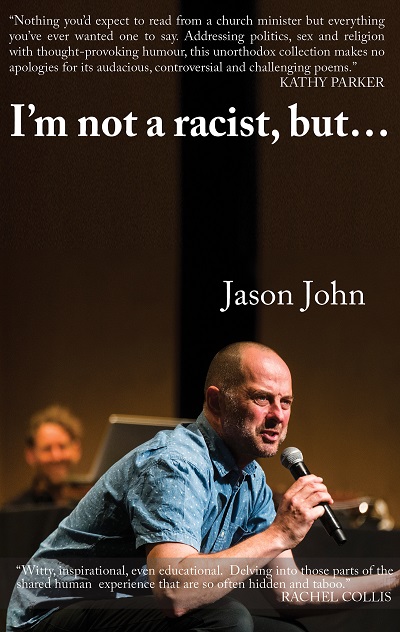
“I’m Not A Racist But” is nothing you’d expect to read from a church minister but everything you’ve ever wanted one to say. Addressing politics, sex and religion with thought-provoking humour, this unorthodox collection makes no apologies for its audacious, controversial and challenging poems. Be prepared for your religious stereotypes to be smashed wide open in the most refreshing of ways. Jason is, without a doubt, the Australian Pete Holmes.” – Kathy Parker, writer, poet, author.
Worshipping Evolution's God
Christians worshipping God as part of life, not the centre of it.
What does it mean for humans to accept that we are not the centre of life, but continue to worship God in a tradition which has assumed that we are?
How do we worship the God of this evolving life? Why is it so hard to get babies out, and why are there so many weeds?
Why do we sin? How does our new understanding of our brain and its evolution help us answer this, and what do we do about it?
Are we inherently selfish and violent? What do we make of the whole story of Easter, seen through the eyes of a God who loves other animals as much as us, and never asked for ritual sacrifices of the innocent? What did Jesus make of Easter?
Why are we here? Is there an “after here?”
What do post-Darwinian Christians make of sex?
A Walk in the Park
Adelaide's Ecofaith Worship Community
This is a potted history of the first couple of years of the Adelaide ecofaith community, which I wrote in my final months there.
As of 2013 the community is still meeting.
This e-book doesn't handle the original image layout brilliantly, so if you buy it let me know and I'll also send you a full colour pdf.
Easter Horror Stories
Recovering Jesus' Good News
In the salvation stories the church reads in the lead up to Easter, someone always gets left out. Someone always has to suffer, because people cannot just be forgiven. Jesus disagrees.
Contents:
Salvation for Noah and his sons
Jesus gets started
Salvation for “the Jews.”
Bible breaking foreskin keepers
Salvation for obedient Jews
shut up about the Messiah!
Mustn’t grumble
the suffering, victorious son of man
Jeremiah: a new thing.
Jesus: a new thing.
The temple is a joke
You sort it out with God.
Bad things happen to good people. Even Jesus
Friday. There is nothing good about it
Mark's Easter: The world’s first cliffhanger?
Schedule an Event
jasonrobertjohn@gmail.com
Contact My Agent
Ha! Maybe one day. In the meantime, contact me ->
Contact Me
jasonrobertjohn@gmail.com
